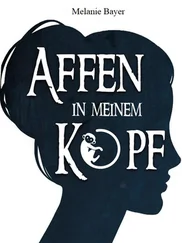William Bayer - Tangier
Здесь есть возможность читать онлайн «William Bayer - Tangier» весь текст электронной книги совершенно бесплатно (целиком полную версию без сокращений). В некоторых случаях можно слушать аудио, скачать через торрент в формате fb2 и присутствует краткое содержание. Жанр: Криминальный детектив, на английском языке. Описание произведения, (предисловие) а так же отзывы посетителей доступны на портале библиотеки ЛибКат.
- Название:Tangier
- Автор:
- Жанр:
- Год:неизвестен
- ISBN:нет данных
- Рейтинг книги:5 / 5. Голосов: 1
-
Избранное:Добавить в избранное
- Отзывы:
-
Ваша оценка:
- 100
- 1
- 2
- 3
- 4
- 5
Tangier: краткое содержание, описание и аннотация
Предлагаем к чтению аннотацию, описание, краткое содержание или предисловие (зависит от того, что написал сам автор книги «Tangier»). Если вы не нашли необходимую информацию о книге — напишите в комментариях, мы постараемся отыскать её.
Tangier — читать онлайн бесплатно полную книгу (весь текст) целиком
Ниже представлен текст книги, разбитый по страницам. Система сохранения места последней прочитанной страницы, позволяет с удобством читать онлайн бесплатно книгу «Tangier», без необходимости каждый раз заново искать на чём Вы остановились. Поставьте закладку, и сможете в любой момент перейти на страницу, на которой закончили чтение.
Интервал:
Закладка:
"I think," she said after they'd made love and were in bed listening to the flutes, "that all those years that Peter was pretending, trying to duplicate his comradeship with mama-oh, you know, Hamid, starting a store here, arranging the beds the same, even making me pretend to be his wife-that all that time he was smothering me with rituals and lies. I couldn't breathe then, find myself, find out who I was. But now I'm free, thanks to you. I've stopped smoking. I've read books on Vietnam. Now, finally, I understand what mother did. And, listen Hamid, there's a connection too between Hanoi and Tangier, between what happened there and what I feel here."
He sat up abruptly when she said that. He was astounded, unsettled, even shocked. "No, no," he said, "it's not the same. Oh, in superficial ways, yes. But we're not a colony anymore."
"But it is the same, Hamid, at least to me. Mama wanted much more than to put out the French. She wanted to change the country. Change the way people lived."
"Where do you get these ideas, Kalinka? From Achar, of course-"
She slapped him playfully. "I have my own ideas. Where do I get them? From using my eyes, like you." She raised her body and grasped his face between her hands. "You should know, Hamid. You, of all people, should know. You were born down there. No water. The degradation. Surely you remember what Dradeb is like. What difference does it make to the people down there if they're ruled by the French or a Moroccan king?" She paused, shook her head. "It doesn't make any difference. None at all. All they care about is that someone care for them and that no one trample them-that they aren't hurt by life."
He turned away. She was right, he knew it, could remember his feelings as he'd gazed up at the Mountain as a boy. But he'd put them aside, replacing his hurt at the indifference of the Europeans by a fascination with their styles of life. He wanted to tell her about that, and about all the hurt he'd once felt, but he was afraid that if he started he would talk too much, say things that would not become him, appear less of a man, and by that risk losing her respect.
"Tell me, Kalinka," he asked, "what did you do? In the old days, I mean-all those years, those twenty years or so you wandered around Tangier? What did you feel then? What did you think?"
She smiled. "Lost in smoke," she said. "I walked the streets, went about my errands, looked at the sea, picked flowers, sat around the shop. I didn't feel anything then. I didn't understand. Thank you, Hamid, for rescuing me."
It was a miracle, they both decided, that they'd found each other in Tangier. He felt grateful to Peter Zvegintzov for having brought her to the town.
Now, when he saw the Russian on the street or bustling about behind his counter through the window of his shop, Hamid felt no anger against him, no need to hound him or confront him anymore. All the old tension was gone, replaced now by pity. He'd made a resolve never to bother Peter again, not even to use him as an informant despite his access to the European world. And he'd told Aziz to forget about him too.
After that night when he and Peter had talked he had felt a softening, an erosion of the toughness that had seized him in July. After that night he felt more strongly than ever the loneliness of the foreigners, the awful, isolated loneliness in which they seemed to live. Zvegintzov, Luscombe, Inigo, the Freys; even the philanderers, Lake, Baldeschi, Fufu; the active homosexuals, men like Robin Scott and Patrick Wax-they evoked his pity, for he felt they lived in cages, separated from life, cut off from it by lack of love. And he felt an almost tragic stillness on the Mountain that fit in with this feeling too. He was stirred by sadness when he drove up there. The Mountain was so distant, so passionless, as opposed to Tangier, a cauldron of tension and rage, an Arab city, his town, his home. He couldn't explain this difference, and, unable to reconcile the Mountain and the city, he took refuge in his love for Kalinka, the warmth of her beside him in the night.
Yet every so often a feud would erupt among the foreigners, and then this new, sad sympathy he felt would shift quickly to contempt. Such a change occurred on the eighth day of the fast. Suddenly his office was filled with shrieking people. Angry name calling and recriminations filled the air.
Within the space of twenty-four hours Colonel Brown's Dalmatian attacked the Ashton Codds' teenage maid, Peter Barclay's schnauzer tore open the leg of Skiddy de Bayonne's gardener, Vanessa Bolton's Alsatian bitch set upon the Hawkins' groom, and Katie Manchester's cocker spaniel bit the buttocks of Camilla Weltonwhist's chauffeur.
There was a common element in these events, Europeans' pets attacking Moroccan flesh. But it was not a simple case of Europeans against Moroccans-the feud developed another way. It became a matter of employers of bitten servants versus the owners of attacking beasts. The Codds, for instance, were adamant in their demand that Colonel Brown's Dalmatian be put to death.
Hamid tried, as best he could, to sort the matter out. He called the province veterinarian, who agreed to take the dogs away for observation at a kennel near the crumbling corrida de toros on the eastern edge of town. Here they were visited daily by incensed owners bearing platters of ground-up meat, while each morning the injured servants were accompanied by their masters to the anti-rabies injection line at the Institute Pasteur.
The rabies scare blew over in a week. The saliva tests proved negative, and the animals were returned to loving homes. But though the alarm proved false, the bitterness did not subside. People swore they'd get even no matter how long it took.
There was no logic, he knew, to these European feuds, yet the city seemed riddled with them-hatreds and vendettas that possessed the foreigners, a form of sustenance by which they renewed themselves and by which, he sometimes felt, they'd be devoured.
When he described the dog-and-servant feud to Kalinka, she shook her head and laughed.
"I know you think it's funny," he said, "but it took three days to straighten out."
"Oh, Hamid, I'm sorry," she said. "It's just so ridiculous-that you have to spend your time on such silly things."
"Yes, it is ridiculous. I know. All my work. All of it."
"Oh, Hamid-" She edged closer to him, took hold of his hand. "Poor Hamid, so much trouble you have, so many troubling affairs."
"What can I do? I'm supposed to police these people."
"Can you transfer to another section, get away from them for a while?"
He shrugged. It had taken him years to get where he was. He'd always wanted to be chief of the foreign section. Now he had the job, and all the misery of it too.
"Listen," she said, "please don't be angry with me, Hamid. You've helped me so much, freeing me from hashish, talking with me, helping me so I could face the world and discover who I am. Well, maybe now I can help you a little too. Because you're a prisoner, Hamid-a prisoner of the Mountain. There're so many more important things than the things that happen there. Injustice, cruelty-I see it so clearly now, and you must free yourself so you can deal with them."
Injustice, cruelty . She was speaking of Dradeb, of course, and in the same words used so often by Achar. Had the surgeon put her up to this? Were he and Bennani using her to get him to help them in Dradeb? He dismissed the notion as absurd, but it set him to thinking about his life.
He had thought that if he could understand Zvegintzov and Kalinka, get to the bottom of their past, then the mystery of all the foreigners would be revealed, and the motives for all their curious actions would become clear to him at last. It hadn't happened. He was still confused, and now Kalinka was implying that he had a narrow vision of the world. A prisoner of the Mountain -was she right about that? He wondered. Could she by some intuitive route have come in a few weeks to a comprehensive grasp of the city while he'd become lost in a sideshow, the foreign colony, so many years? This notion-that for years he'd been missing Tangier's essential point-was too terrible to face.
Читать дальшеИнтервал:
Закладка:
Похожие книги на «Tangier»
Представляем Вашему вниманию похожие книги на «Tangier» списком для выбора. Мы отобрали схожую по названию и смыслу литературу в надежде предоставить читателям больше вариантов отыскать новые, интересные, ещё непрочитанные произведения.
Обсуждение, отзывы о книге «Tangier» и просто собственные мнения читателей. Оставьте ваши комментарии, напишите, что Вы думаете о произведении, его смысле или главных героях. Укажите что конкретно понравилось, а что нет, и почему Вы так считаете.












